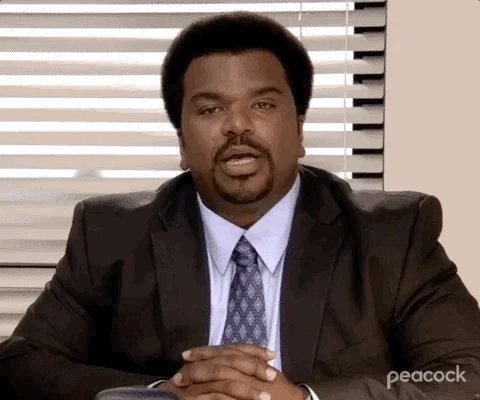Suggestions
Seth Sivak
Founder, Entrepreneur, Game Dev
Seth Sivak is the former VP of Development on World of Warcraft and Studio Head for Blizzard Boston at Blizzard Entertainment.12 Previously, he co-founded and served as CEO of Proletariat Inc., a video game developer that Blizzard Entertainment acquired in 2022.134 He has a background in engineering, product, and design.145
Sivak's career includes:
- Proletariat Inc. Co-founded in 2012, the studio is known for its title Spellbreak.23
- Blizzard Entertainment: After the acquisition of Proletariat in 2022, Sivak took on the role of VP of Development for World of Warcraft and Studio Head for Blizzard Boston.1
- Early Career: Prior to founding Proletariat, Sivak was a gameplay engineer at Conduit Labs and held positions at Zynga as a product manager and executive producer. He also taught game design at Northeastern University.2
- Additional Experience: Engineer, designer, producer, and product manager.1 Creative Director and Project Lead.1 Lead Designer and liaison with LucasFilm on the Indiana Jones IP.1 Worked on Café World and Mafia Wars as a product manager.1 Graduate intern in the Creative Technology Group in 2008.1 Graduate studies in Entertainment Technology on a student pitched game project called Winds of Orbis.1 Professor of Game Design that taught Level Design, Introduction to Game Design and more.1 Speaker at numerous conferences.1 Writer of chapters on Legend of Zelda: Ocarina of Time and Diablo II.1 Speaker and member.1
Highlights
I recently had the pleasure of joining the @naavik_co Podcast to dive deep into a topic I care deeply about: studio culture and its impact on success. Hosted by @takeit_eazzy, we explored the question: What is culture, and why does it matter?
In this episode, we discuss the culture we built at Proletariat, the lessons I learned along the way, and how a strong team culture can be a driving force behind company success. I had the chance to talk about the definition of culture, who is responsible for setting and maintaining it, and actionable tactics leaders can use to build and nurture a thriving culture within their teams.
Over the course of our hour-long conversation, we dove into Proletariat’s core values and how they evolved as the company grew. We also touched on how values need to adapt in response to a company’s changing needs and goals. We even talk about the difficult tradeoffs of investing in culture when a company is simply struggling to survive. If you’re curious about how culture can fuel growth, retention, and success, this episode is for you.
Check it out here: https://t.co/h7celKXsTw
It is hard to hire great leaders and managers. Below are five of my favorite questions to ask in an interview to help you identify strong leadership candidates.
Unlike many individual contributor roles, management and leadership positions can be particularly challenging to evaluate in an interview setting. A conversation is just one piece of the puzzle. In addition to interviews, I highly recommend conducting thorough reference checks and ensuring you have a well-structured onboarding plan for new hires—two topics I’ll cover in future posts.
In a previous post, I discussed how to hire for grit. Beyond grit, there are several qualities I look for when hiring managers and leaders: the ability to make sound decisions, clear and effective communication (especially when delivering bad news), a results-oriented mindset over political maneuvering, and a high degree of self-awareness.
-
How do you define a high-performing team? This is a strong first question because it opens the door to follow-up inquiries. Here, I’m looking for candidates who can articulate not only how their team achieves results and meets goals but also how they balance company success with individual and team growth. It’s also a good opportunity to assess their views on culture. You can dig deeper by asking how they’ve contributed to creating an environment where high-performing teams can thrive.
-
What steps do you take to deliver difficult news that you know will upset your team? This question often reveals a lot about a candidate. It’s not uncommon for interviewees to seem visibly uncomfortable while answering, as delivering bad news is one of the hardest parts of management. What I listen for here is a commitment to transparency and accountability. Bonus points go to those who can explain how they foster a resilient team culture—one capable of processing and responding to challenging news.
-
How would your team describe your leadership style and strengths as a manager? This question provides two key insights: first, the candidate’s level of self-awareness, and second, a baseline for comparison during reference checks. While there isn’t one "right" leadership style, I want to see that the candidate has put thought into their leadership approach and can articulate what makes them effective. Leaders who are intentional about their craft tend to be the ones who grow and adapt the most successfully.
-
Describe a situation where you’ve had to manage your own emotions effectively to prevent the team from feeling demoralized or negative. It is common to ask how a leader motivates their team, but I find that learning how they avoid demotivating their team is often more insightful. This is especially true in passion-driven industries like game development, where many people are naturally motivated to do great work. In this answer, I want to hear evidence of self-awareness and a thoughtful, considered approach to communication.
-
How would you handle a high-performing team member who is consistently late to work? I love this question because it challenges the candidate to think beyond rigid policy enforcement and into the realm of personalized management. If their answer is, "I’d tell them to be on time or face the consequences," I often follow up with, "What if they say they work best later in the day?" The best responses delve into the nuances of individual management, balancing team culture and performance expectations with the needs of top performers.
Final Thoughts Hiring great leaders and managers involves far more than just asking a few well-crafted questions, but these five have proven to be some of the most insightful over the years. When interviewing leadership candidates, think about your company’s culture and what kind of leaders will thrive within it. Remember that interviewing is a skill and you should constantly work to improve your ability to do it well.



